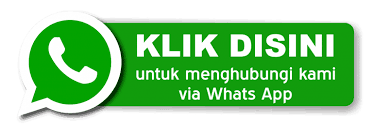Social Media and Perceptions of Mental Health and Their Implications for Students' Psychological Health
Keywords:
Social Media, Perception, Mental Health, Students, Self-DiagnosisAbstract
Abstract
This study aims to examine how social media shapes students' perceptions of mental health and its implications for their psychological health. The study used a qualitative approach with data collection through in-depth interviews and participant observation to explore students' experiences, views, and interactions with social media content related to mental health. The results showed that social media plays a central role in building students' understanding of mental health issues. Educational content, personal stories, and online communities are the main sources of information that influence students' perceptions. However, the findings also revealed that uncontrolled exposure to mental health content on social media can encourage students to self-diagnose. This phenomenon often leads to misunderstandings, excessive anxiety, and inappropriate decision-making regarding their mental health conditions, without professional consultation. This study emphasizes the importance of managing the use of social media wisely to support students' mental health. Higher education institutions and online communities can utilize social media as a more positive platform to improve digital literacy and support mental health, improve digital literacy, and reduce the risk of misdiagnosis. Based on these findings, further research is recommended to explore effective digital literacy strategies and the implementation of social media-based mentoring to mitigate the risk of misdiagnosis.
References
Aryanto, R. (2023). Konten Informasi Kesehatan Mental Dalam Instagram Dan Self-Diagnosis Di Kalangan Remaja: Studi Korelasi pada Remaja Anggota Komunitas Online Riliv Buddy. Universitas Pendidikan Indonesia.
Cahyono, A. S. (2016). Pengaruh Media Sosial Terhadap Perubahan Sosial Masyarakat Di Indonesia. Publiciana, 9(1), 140-157.
Kaplan, Andreas M., Michael Haenlein. (2010). Users of the world, Unite! The challenges and Opportunities of Social Media. Business Horizons
Kaplan, Andreas M., Michael Haenlein. (2010). Users of the world, Unite! The challenges and Opportunities of Social Media. Business Horizons.
Kusumawardani, D., Hana, Y., Akmalannisa, I., Azizah, P.N., Tsabitah, N., Putri, N.I.I., Akhmad, Z.G., Nada, N.L. and Putri, D.P.S. (2024). Pengaruh Media Sosial terhadap Kesejahteraan Mental Mahasiswa di Fakultas Ilmu Pendidikan dan Psikologi Program Studi Pendidikan Luar Sekolah Universitas Negeri Semarang. Jurnal Analis, 3(1), 14-26.
Mulawarman, M., & Nurfitri, A. D. (2017). Perilaku pengguna media sosial beserta implikasinya ditinjau dari perspektif psikologi sosial terapan. Buletin Psikologi, 25(1), 36-44.
Nurdiantara, R. R. (2020). Pengaruh Media Sosial Twitter Dan Customer Engagement Terhadap Kepuasan Bobotoh Persib. Universitas Pasundan.
Rafiq, A. (2020). Dampak Media Sosial Terhadap Perubahan Sosial Suatu Masyarakat. Global Komunika: Jurnal Ilmu Sosial Dan Ilmu Politik, 3(1), 18-29.
Yana, A., Rudhani , G. H., Habiba , L. U., Lubis , C. N. S., Zaidan , A., Ramadhan , R., & Harahap , N. (2024). Persepsi Mahasiswa Terhadap Hubungan Media Sosial Dan Depresi : Studi Kasus Mahasiswa Ilmu Komunikasi UIN Sumatera Utara Stambuk 2020 - 2023. Retorika: Jurnal Komunikasi, Sosial dan Ilmu Politik, 1(3), 184–188. Retrieved from https://jurnal.kolibi.org/index.php/retorika/article/view/2215.
Robbins, S. P. (2003). Perilaku Organisasi. Gramedia.
Gibson, J. L., & Ivancevich, J. M. (1994). Organisasi dan Manajemen (Edisi ke-4). Erlangga.
Sarwono, S. W. (1983). Teori-teori Psikologi Sosial. Rajawali.
Nasrullah, R. (2017). Media Sosial: Perspektif komunikasi, Budaya, dan Sosio. Teknologi. Bandung: Simbiosa Rekatama Media.
Handayani, E. S. (2022). Kesehatan Mental (Mental Hygiene). Universitas Islam Kalimantan Muhammad Arsyad Al-Banjari.
Downloads
Published
How to Cite
Issue
Section
License
Copyright (c) 2025 Almadina Rakhmaniar, Rasman Sonjana, M.Rizky Purnama, Moch. Fiky Trisandhi Rahmat

This work is licensed under a Creative Commons Attribution-ShareAlike 4.0 International License.



